Rossini: La Gazzetta (Barbacini)
Introduction
Rossini`s (almost unknown) comic opera, in an almost farcical production by Dario Fo, given an almost examplary performance from Barcelona.
The plot is fairly straightforward, but becomes a little convaluted. Don Pomponio advertises his own daughter, Lisetta, in the eponymous newspaper with the hope that someone will come along and marry her. She, of course, is already in love with another, Filippo. There are many completely inappropriate suitors (all of which Pomponio loves to bits).
At the same time there is yet another trio of father, daughter and prospective lover in the shape of Anselmo, his daughter, Doralice, and the Alberto.
Of course, in the end, everything works out fine for Lisetta and Filippo, but we have to go through rather a lot to get there.
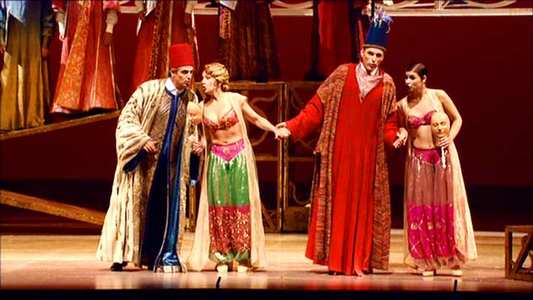
Video
Region-free NTSC 16:9 anamorphic and this production was filmed with high-definition cameras. This DVD is one of the best I have seen from Opus-Arte regarding video quality. The colours of the set and costumes (very imaginatively thought out by Dario Fo) are brilliantly caught.
I was shocked by the dreadful direction during the curtain calls for the chorus and dancers. We saw more bobbing heads of those making a quick exit as soon as the music finished than we did of the stage.
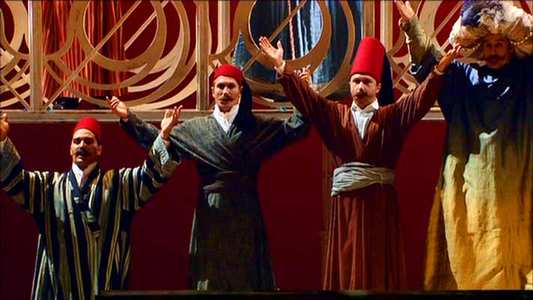
Audio
The sound is also fine, with another highly detailed DTS option. Perhaps too detailed in places though, as I heard several scrappy orchestral entries (notably in the overture when the leader is obviously a little keener to get through the music than the rest of the fiddles). I`ve checked up on this band since seeing a few of the productions from this theatre, and it seems that it is used as some form of training orchestra (apologies if I haven`t got this completely right), using young profesionals and students being led by more established players. This cannot be anything but a fine thing, although they are in no way one of the finest opera orchestras around at the moment, and this can be something of a drawback.
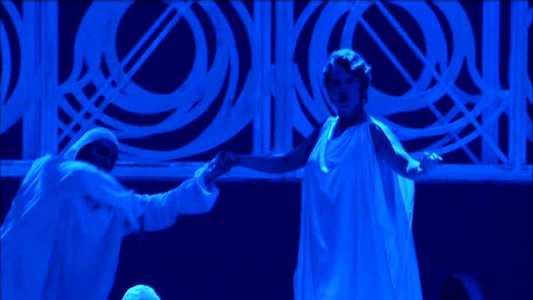
Features
Extras are disappointing. We have a sparce 5 minute chat from Dario Fo which doesn`t tell us much at all (together with the usual illustrated synopsis and cast gallery).
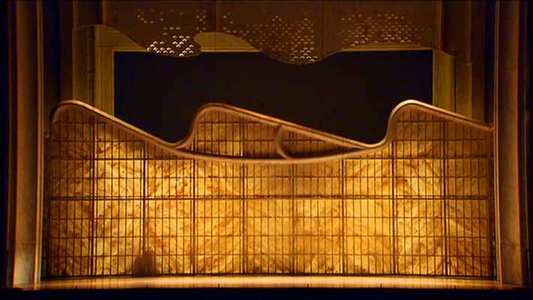
Conclusion
When I first put this DVD on, I had a strange sense that I was watching the wrong opera. For something I had never heard of before, let alone heard, the overture was incredibly familiar. Rossini was one of music`s greatest borrowers, mostly from himself, and here we are faced with exactly the same opening to his more familiar (and far more successful) `La Cenerentola`. A quick Google told me that La Gazzetta was written 4 or 5 months before, and in fact, it was the latter opera which had borrowed the overture, not the other way around.
Now I was quite satisfied that I hadn`t gone mad, the rest of the piece seemed to flow by like a pretty collecton of set-pieces that are meant to show off the technique of the singers, but very little else unfortunately.
To paraphrase Rossini`s own comment on Wagner, the orchestral writing has some lovely moments, but some quite ordinary quarters of an hour. Luckily, the vocal writing is natually gripping in places, as he throws series` of semiquaver passages left, right and centre - you can tell they`re coming up as the soloist stays as still as possible. The amount of vocal virtuosity seems to be in inverse proportion to the amount of proper acting that can be done.
The singing is rather good though, and despite a little too much hamming-it-up by Bruno Practicó (Don Pomponio - pompous by name and nature) the ensemble which has been put together for this production is one of the best you can come across in such music.
Cinzia Forte (Lisetta) has quite a powerful voice, and can seem a bit shrill at times, but warms into the part quite nicely for Act 2. Charles Workman (Alberto) has a lovely smooth quality to his singing and is quite brilliant in the Act 1 Introduction (Rossini obviously didn`t like to get his singers to warm up easily before the frightening stuff).
Overall, this is a very well put together performance, and despite my own personal feelings towards the quaility of the music, anyone with an interest in this style of opera (and to see what a theatrical master like Dario Fo can do with it) should give it a go.
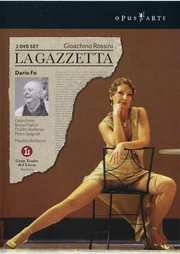
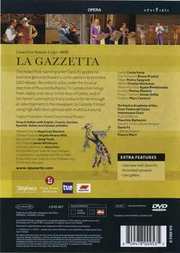




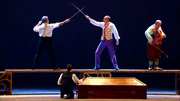
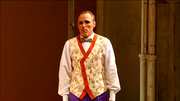
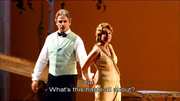
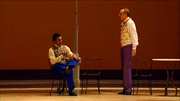
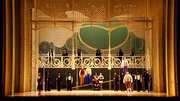
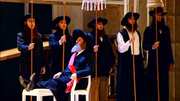
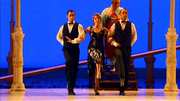
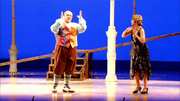
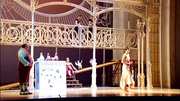
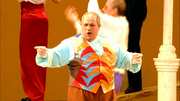
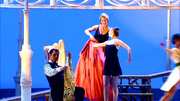
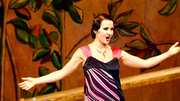
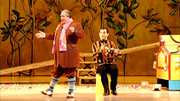
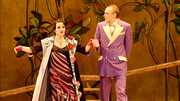
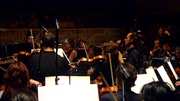
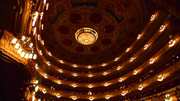
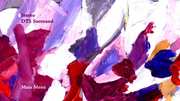
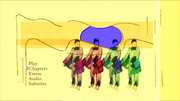






























Your Opinions and Comments
Be the first to post a comment!